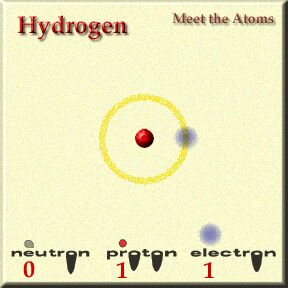Hydrogen Industry Wants $1.17b Of Your Money (With More To Come)
The bailout-beggar line just got a little longer, as Green Car Congress reports that the US Fuel Cell Council is requesting a cool $1.17b of your hard-earned tax dollars (kudos for making the smallest handout request in months!). The money would come in the form of full funding for a number of programs authorized in the 2005 Energy Policy Act, including deployment programs; development of a refueling infrastructure; learning demonstrations; building domestic manufacturing capability; accelerating public-private research; and investing in fuel cell transit programs. And they aren’t leaving it there, either. A July 2008 study by the National Research Council estimated that a total public-private investment of about $200 billion would be required from 2008 to 2023 to support a transition from gasoline to hydrogen fuel cell vehicles, at which point fuel cell vehicles would become competitive with gasoline-powered vehicles. Or, as we find so many causes for repeating, not. Though hydrogen fuel cells offer more long-term promise than say, ethanol, we’re still talking about some serious pie in the sky. At an appropriately astronomical cost too. Sorry kids, but if we’re to spend government money on something like this, I’d like to see it go towards lithium-ion battery development, which shows more medium-term promise and doesn’t require a new ground-up infrastructure.
More by Edward Niedermeyer

































Comments
Join the conversation
If hydrogen ends up being the [s]fuel[/s] energy storage medium of the future it will not require any infrastructure. Two of the most common sources for hydrogen are natural gas and water, which people have access to in their homes. However, it requires huge amounts of energy to convert water or natural gas into hydrogen, on top of the waste/use of that water or natural gas. http://en.wikipedia.org/wiki/Hydrogen_vehicle#Production Hydrogen is rather universally accepted as a scam. http://en.wikipedia.org/wiki/Hydrogen_vehicle#Criticism The future is much more likely going to be plug-in hybrids with small internal combustion engines to provide power during long trips. Basically the Volt, although GM may not be the company to perfect the technology. Like ethanol, hydrogen is just a special interest fleecing of America.
"Though hydrogen fuel cells offer more long-term promise than say, ethanol, we’re still talking about some serious pie in the sky." No. Hydrogen is nonsense just like ethanol.
It's refreshing to be in the company of people who understand how futile a hydrogen-based energy economy is. I'm fairly weary about bailing out GM and its Detroit brethren, but understand why we're somewhat stuck doing it. This, though, is a crock of horsecrap. I'm sick of my taxes funding nonsensical alternative fuels that anyone who's taken a freshman-level physics course would see right through. The second law of thermodynamics should be required understanding for any politician who lays their porky hands on these bills (including, unfortunately, the president-elect, who is sadly misguided about the viability of ethanol, ICE hydrogen, and FC hydrogen).